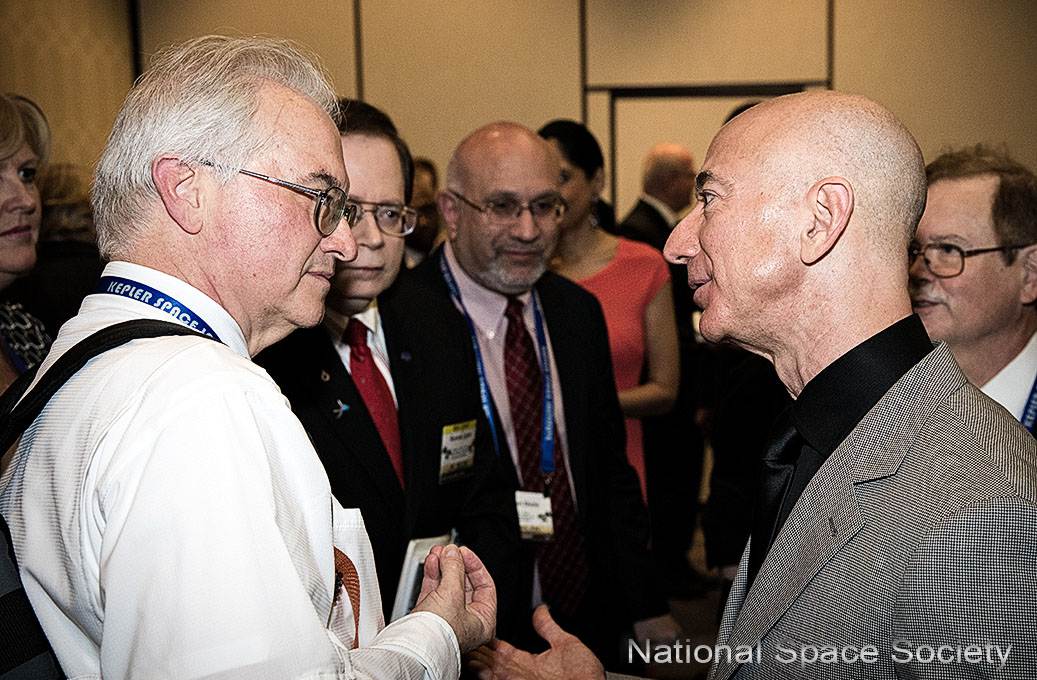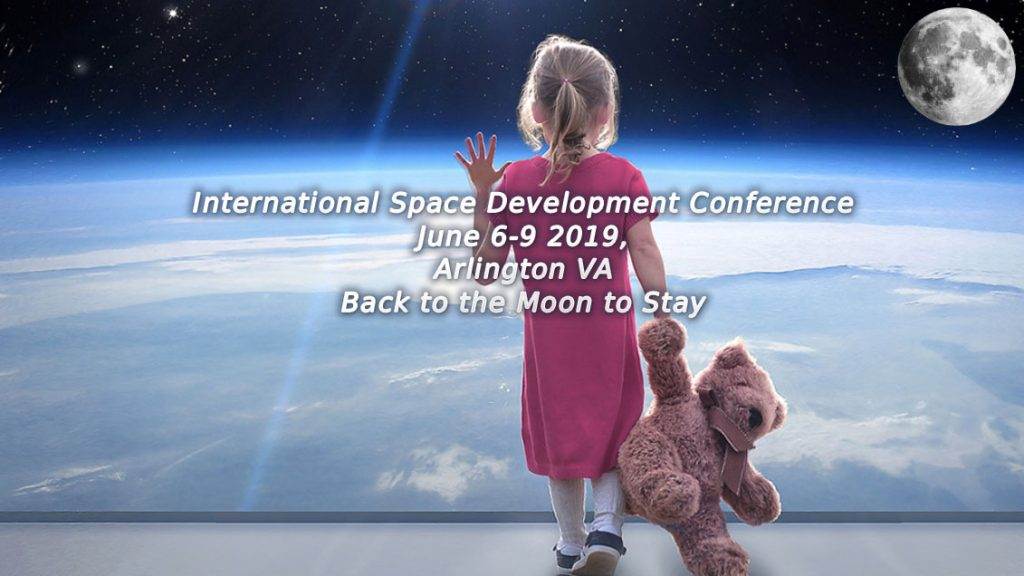Shortly before Christmas I received an email from Madhu Thangavelu, chair of the Moon Development and Settlement programming track for the 2019 International Space Development Conference (ISDC). The email was a call for the submission of abstracts (presentation proposals) for the Moon Development and Settlement track. Coincidentally the theme for the 2019 ISDC is Back to the Moon to Stay.
It was in 2017 that, after a long hiatus from attending ISDCs, I submitted an abstract for that year’s ISDC. I was honored that my submission Globalization of the Solar System was accepted as a part of the conference’s Space Settlement programming track. My 2018 submission, this time for the Moon Development and Settlement programming track, was Factors Impacting the Sustainability of a Cislunar Economy and it too was accepted.
For my part, I have already registered for the 2019 ISDC – taking advantage of the early-bird registration rate. I have attended many ISDCs over the years and have never left one disappointed. While I have attended a number of other space conferences, the broad spectrum of programming that ISDC offers makes it particularly appealing. The 2018 ISDC was particularly memorable in that I was able to meet and speak with both Freeman Dyson and Jeff Bezos.

Madhu’s email has created two challenges for me. The first is whether or not to submit an abstract. I find that coming up with an original idea that is worthy of ISDC to be something of a challenge. That idea must then be captured in an abstract that provides a compelling narrative arc. My second challenge is in deciding which programming track I would want to submit an abstract to – given that I have not yet determined what issue I would want to address. The proposed programming tracks may be summarized as follows:
- NASA Innovative Advanced Concepts (NIAC): While I have attended the NIAC conference in the past, this track’s focus on leading edge technological and engineering innovations lies well outside my sphere of expertise.
- Interstellar: This track addresses interstellar transportation concepts, mission methodologies, benefits, and rationales.
- Living in Space: A track dealing with the biological, physical, and psychological aspects of space travel and settlement – all areas that will be critical to the successful establishment of human outposts and colonies off-Earth.
- Space Elevators: A track addressing all aspects of space elevators with an emphasis on the associated technologies, engineering, and design challenges.
- Next Generation: NextGen programming focuses on students, educators, and those interested in inspiring students to work towards the creation of a spacefaring future.
- Future Space Business Symposium: The track that is of greatest personal interest because the promise of space depends entirely on our ability to make it a commercially profitable undertaking.
- Mars: Exploration and Settlement: A track dedicated to addressing the benefits and challenges associated with the human exploration of Mars.
- Moon Development and Settlement: Presentations not just about lunar bases and the use of lunar resources but also about the corresponding infrastructure in cis-lunar space and associated support systems.
- Space Governance and Security: Space governance with respect to policy issues, regulatory environment, and legal framework is in the critical path that will heavily influence the odds of whether or not private commercial ventures succeed or fail.
- Space Settlement: A programming track unique to ISDC, this track deals with the engineering and design challenges of building and operating space settlements with a focus on free space or orbital space settlements of the O’Neill variety.
- Space Solar Power: Addresses the latest developments in the field of space solar power and the design and construction of solar power satellites.
- Space Transportation Symposium: Affordable space transportation has been the most formidable barrier to space development and space settlement. Presentations in this track address the many facets of space transportation including technical innovations, reusability, and alternative propulsion systems.
- LaunchPad Talks: The ISDC version of TED talks but for space. Talks are brief and are meant to be engaging high-level pitches on innovative space concepts.
- Many Roads to Space: A catch-all track that offers a platform for the presentation of a diverse range of topics.
While I have not yet decided whether or not I will submit an abstract for the 2019 ISDC, I do know that I will be there. In fact I would categorize ISDC as “the” space conference that every space enthusiast should attend. I encourage you dear reader to register now (registration closed) before the rates go up. If you are not an NSS member, you really should become one because the discount you receive on your ISDC registration will more than pay for your NSS membership. In fact you can join NSS as part of your ISDC registration process and the discount will be automatically applied. Don’t wait – do it now (registration closed). If you want to learn more about the ISDC visit the 2019 ISDC web site.
About Jim Plaxco: In addition to being an NSS Space Ambassador, Jim is President of the Chicago Society for Space Studies and serves as a NASA JPL Solar System Ambassador. Jim is also a former Vice President and former Director of the National Space Society.
Disclaimer: The views expressed in this guest post are those of the author and should not be considered as representing the views of the National Space Society.



















